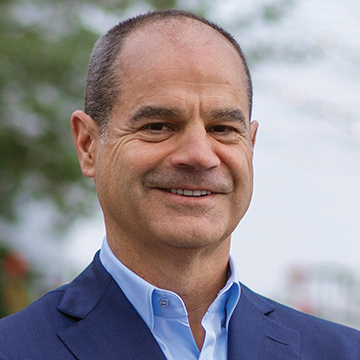From Boots to Suits and Back Again

When I graduated college, I realized I had a choice: suit and tie or construction boots. I chose the latter. Subconsciously, this may have been my first step toward becoming an entrepreneur and eventually the founder of Walnut Street Finance.
I wouldn’t say that my career path was always a calculated journey. Sometimes I just plowed ahead toward what I thought would bring success. But one thing I did consistently was throw myself completely into every job, no matter how big or small. I turned each opportunity into a learning experience. I know it may sound cliché, but there is no better way to understand your customers than to have walked in their boots.
Perseverance and Thirst for Knowledge
My first boots-in-the-mud job was on a real estate development site called Ashburn Village. It wasn’t far from where I lived in Virginia. I remember riding my bike through the dirt of construction sites around where I grew up. There was rapid development sweeping Washington, D.C., suburbs, so real estate felt natural to me.
I graduated with a degree in economics from George Mason University in the 80s with the know-how to use computers, which were just making their foray into businesses. Looking for a job after graduation, I knocked on the trailer door of the development site of Ashburn Village. I didn’t have an appointment. I offered to digitize the firm’s finances using Lotus 1-2-3 and told them they could fire me whenever they weren’t happy. They hired me on the spot. Over the next four years, I worked on the finances while soaking up as much real estate knowledge as possible.
Through a combination of perseverance and luck, the next 10 years laid substantial groundwork for who I am today. For this next stage of my journey, I had to put on a tie.
Before the Great Recession, there was the savings and loan crisis in the late 80s and early 90s. I joined the Resolution Trust Corporation (RTC) just as it started to collect and sell assets. I was ready to tackle this Wild West home mortgage disaster. Of the hundreds of billions of assets the RTC liquidated, I was active in the sale of $14 billion in real estate. I quickly realized there was a whole other side of landholding that I had no idea about.
This was a crazy time. I walked away from this experience with an overflow of information on how mortgages worked, the risks of savings and loans, asset valuation and trustworthiness—all of which would play a major part in my decision to start my own business.
After spending five good years with Sunrise Senior Development, building across the mid-Atlantic and southeast and helping take that firm public, I was ready to put my boots back on—on my terms.
Thinking Outside the Bank
At this point, I realized real estate investors had to think outside the bank and lenders had to take underwriting into serious consideration. The snowball repercussions of being too risky with money could be devastating to so many.
In 1997, I took the entrepreneurial plunge and formed Walnut Street Development. We built single-family detached houses and townhomes as well as some commercial properties. Our goal was $1 million in revenue for the first year. We hit it with our first two projects.
During the next 10 years, we were building nonstop. I developed a deep appreciation for what our future Walnut Street Finance borrowers would experience. We did it all—from acquiring to zoning, materials sourcing to permitting, and everything in between. There were a lot of growing pains, and I was often flying by the seat of my pants. Looking back, I am grateful for my mentors and my family for keeping me grounded.
You Can’t Do It Alone
The next thing I knew, we were peaking at more than $250 million in revenue. But I wasn’t doing any of this alone. Not only did I have my own trusted construction team, I had formed partnerships with The Carlyle Group, Lehman Brothers and Trammell Crow. This trifecta of private equity, investment banking and international real estate powerhouses helped me deliver more than 1,200 residential units and 200,000 square feet of commercial property in the D.C. area.
By this point in my journey, I’d learned a few incredibly valuable lessons. The first was that I needed to be sure my construction boots are always at the ready. The second was that we don’t ever succeed alone. One man building a company is a fool if he thinks he doesn’t need smart, experienced, independent thinkers and doers around him.
I also strive to keep a personal touch on the business. It was important that I was boots on the ground during our builds, putting faces to names and roles, resolving pain points and understanding every stage of a project.
The Big Twist
By 2008, the market turned. We decided it was best to go from sell to buy. We scooped up 100-year-old row houses in D.C., which we fix and flipped. We did it again and again, with great success and excess capital. By pivoting from building to lending, we came out of the recession relatively unscathed.
We made our first few loans—using a pen and yellow pad—to our previous flipping competitors. We had just two employees. Four years later, we originated more than 350 loans. Last year we generated over $70 million in loans and had more than 15 people on staff. We proactively nurture a culture of quality and service. We’ve built this company by doing what we say we are going to do—with our customers, fund investors and one another. Most important, we can serve our customers best because we know what it is like to walk in our customers boots. We never forget where we came from.













